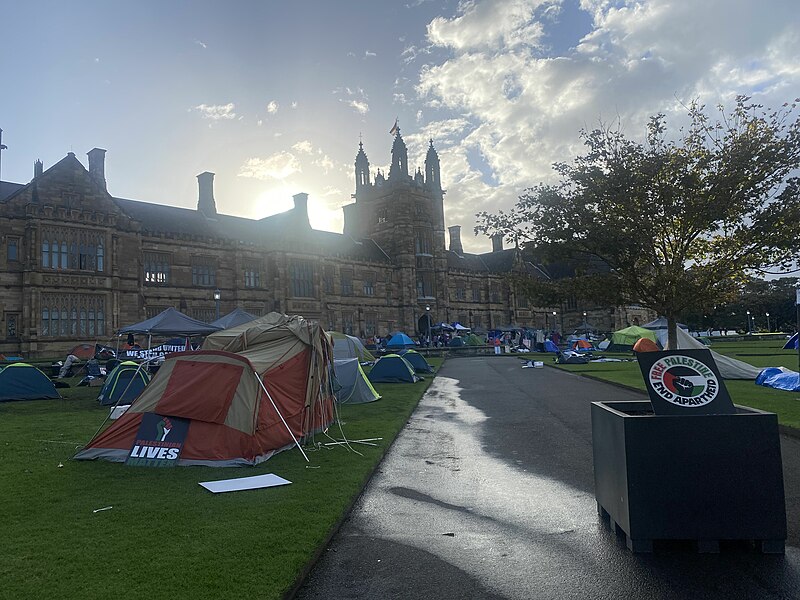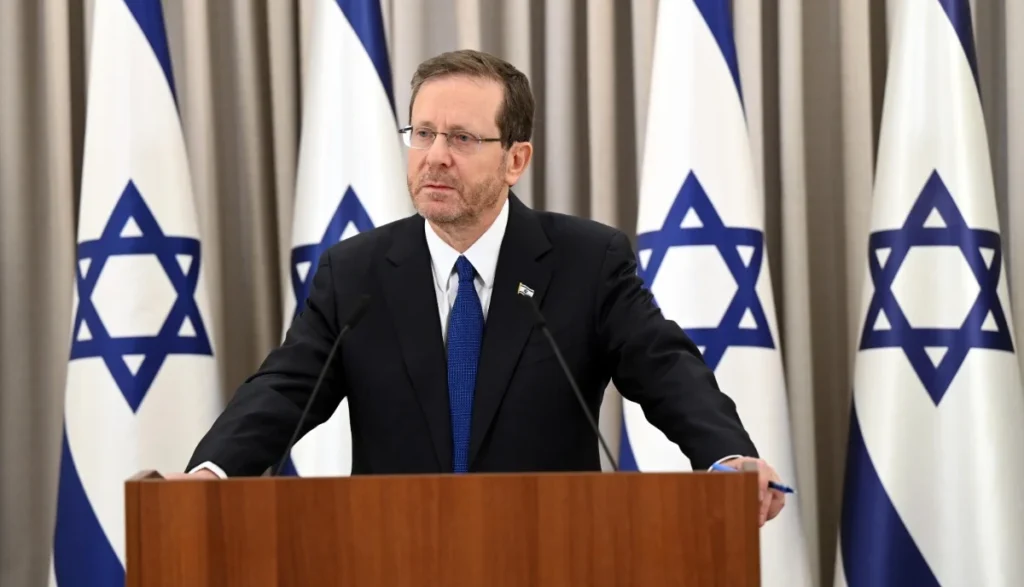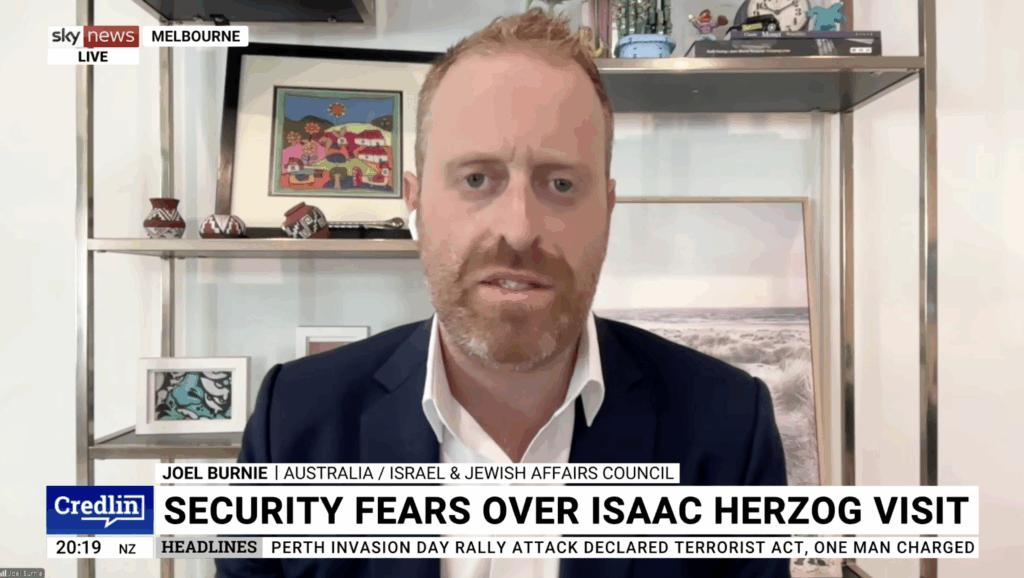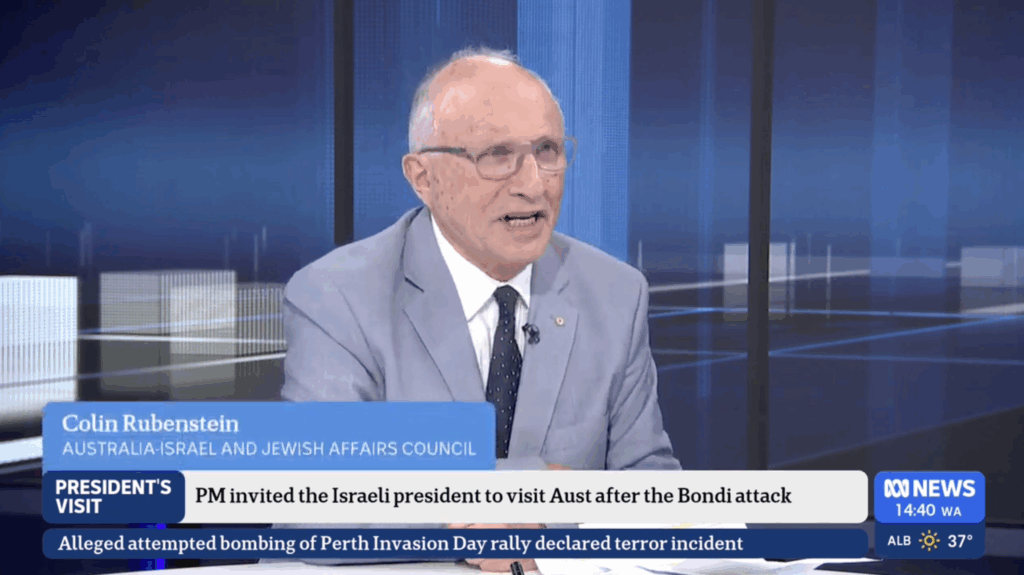IN THE MEDIA
‘Devil’s bargain’: Sydney University is tolerating hate speech by caving in to its tent camp extremists
June 30, 2024 | Greg Rose

Sky News – 29 June 2024
“Long live the student Intifada” declared the Sydney University Muslim Student Association (SUMSA) on Saturday.
After months of protests and occupation of university grounds, the declaration announced SUMSA’s victory over a supine Sydney University executive team.
The actions of the Vice-Chancellor Mark Scott, whose complete capitulation to SUMSA has been a disgrace, must urgently be reviewed by the university senate.
The University of Sydney’s endorsement of the political demands put forward by this activist group is simply a devil’s bargain with radicalised extremists.
A joint statement released on Wednesday night by Australia’s peak Jewish organisations described negotiations with SUMSA as appalling and an incentive for further and more extreme disruption.
The statement accused the university of stabbing it in the back and said Jewish community organisations have “lost confidence in the capacity of the university to provide for the physical, cultural and psychosocial safety of Jewish students and staff members”.
On the social media post announcing SUMSA’s victory over the university was the logo of Stand 4 Palestine – a front group for a global Islamist extremist network which calls for a global caliphate and a rejection of all non-Muslims, and openly spreads violent hatred of Jews.
That organisation is Hizb ut-Tahrir – which is a banned terrorist organisation or otherwise not permitted to operate in the United Kingdom, Germany, Russia, most of the Middle East (Egypt, Iraq, Jordan, Libya, Morocco, Saudi Arabia, Syria, Tunisia and Turkey), central Asia, and South Asia (Pakistan, Bangladesh).
Through Stand 4 Palestine’s 33,000 online followers, and its SUMSA links, Hizb ut-Tahrir has greatly expanded its Australian base.
Stand 4 Palestine operates within, through and in partnership with SUMSA.
Over the past two decades, repeated calls have been made to consider proscribing Hizb ut-Tahrir as a terrorist group in Australia.
Successive governments have found it did not cross the line of advocating a specific terrorist act, as required under part 5.3 of the Criminal Code.
In the United Kingdom, there is a different threshold and Hizb ut-Tahrir was designated a terrorist organisation on January 19.
Under the UK counterterrorism legislation, glorification of terrorism is specifically included as a form of advocacy of terrorist acts.
The Australian legislation is modelled upon the British, but we failed to include glorification as advocacy of terrorism.
That error needs to be fixed by an amendment – because the case for Australia to be able to act against Hizb ut-Tahrir and similar groups is overwhelming.
The University of Sydney’s capitulation to SUMSA provides the allies of Hizb ut-Tahrir with both immediate actions and longer-term changes to university culture.
From July 2024, there will be disclosure on the University website of all defence and security-related research agreements and partnerships; a review of investment and divestment policies; and a public statement affirming the importance of a Gaza ceasefire.
Unsurprisingly, no mention is made of disclosure of foreign funding and influence within university Middle East research centres and student clubs.
Vice-Chancellor Mark Scott claims that disclosure and review are analogous to divestment from modern slavery, cluster munitions, fossil fuels and tobacco.
However, common sense would consider Australian defence research and investment to be related to the national interest in a way those other things are not.
In the longer term, the university reportedly promised SUMSA it will: strengthen ties with Palestinian universities; establish a Palestine experience education unit; double funding for affected students and scholars over next three years with the majority given to Gazans; increase equity and inclusion and acknowledge the legacy of racism and injustices; and combat Islamophobia.
Moreover, to achieve this, SUMSA will hold monthly meetings with senior university executive leadership.
A working group of members to be mutually agreed upon by SUMSA and university management will contain a Muslim and Palestinian representative and have emphasis on “human rights experts” – which you can understand as pro-Palestinian political activists.
SUMSA will provide documents and resources for the working group to review.
In other words, SUMSA, with its close ties to Hizb ut-Tahrir, will now play a dominating role across the university’s Middle Eastern interests.
Of course, this involves the complete silencing of Jewish, Zionist and pro-Israel voices.
The University of Sydney academics against antisemitism and the NSW Jewish Board of Deputies have publicly announced their dismay at the lack of consultations with them and the absolute disregard of their interests.
It is crystal clear that hate speech by SUMSA and Hizb ut-Tahrir against those who are Jewish, Zionist and pro-Israel is tolerated – even privileged – at the University of Sydney.
The Vice-Chancellor, indeed, endorses them as “freedom of expression”.
Associate Professor Josh Roose, an expert on violent extremism at the Alfred Deakin Institute of Citizenship and Globalisation at Deakin University, has said the threat to social harmony posed by Hizb ut-Tahrir requires the strengthening of Australian hate speech laws.
In 2005, there was an attempt by then-Labor MP and later Attorney-General Nicola Roxon to introduce an amendment to the Crimes Act to explicitly prohibit violence, incitement and the glorification of violence against a racial or religious group.
This amendment is now urgent.
It would provide a clear line between what is acceptable freedom of speech and what is not.
Moreover, a new national anti-extremism strategy is required to address groups like Hizb ut-Tahrir.
This is an education that the University of Sydney administration sorely needs.
Greg Rose is a Professor of Law at the University of Wollongong and is a Visiting Fellow at the Australia/Israel & Jewish Affairs Council.





